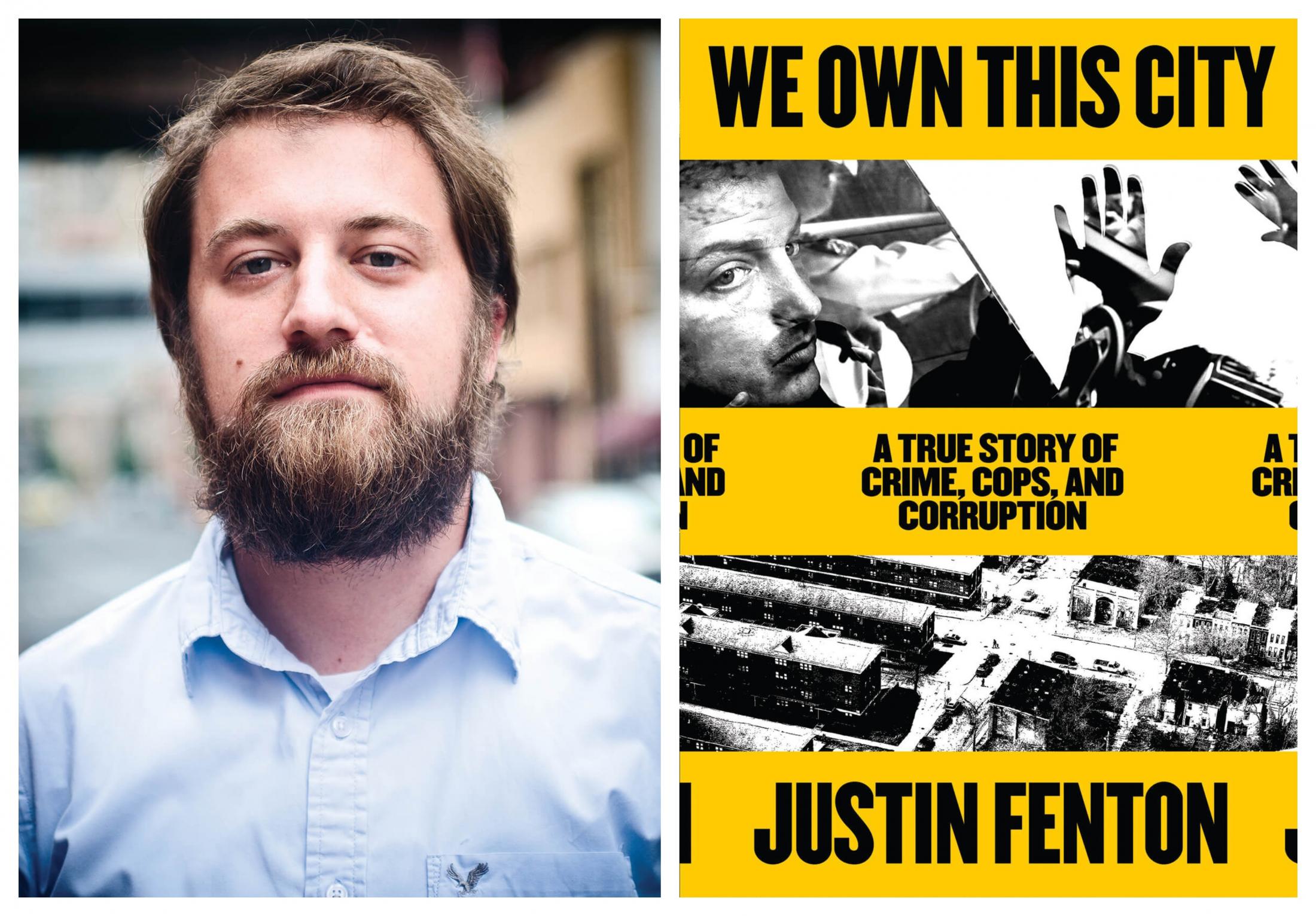Arts & Culture
Justin Fenton’s New Book Offers a Startling Look at the Gun Trace Task Force
'Sun' reporter discusses chronicling rogue GTTF activities in 'We Own This City: A True Story of Crime, Cops, and Corruption.'

Since 2008, Justin Fenton has covered cops and courts for the Sun, earning multiple kudos from this magazine as the city’s best reporter. He contributed to the paper’s Pulitzer-finalist coverage of the death of Freddie Gray, as well the Healthy Holly series that won the prize last year.
His first book, We Own This City: A True Story of Crime, Cops, and Corruption, follows up his prolific reporting on the explosive indictments and convictions of members of the Baltimore Police Department’s Gun Trace Task Force. For Baltimoreans, some of the most compelling parts of the book will be the chapters in which Fenton chronicles rogue GTTF activities even as the city convulses from the 2015 Uprising. It’s a startling look inside the city’s police department that local readers shouldn’t miss.
What did you learn in reporting this book that you hadn’t picked up in your Sun coverage?
There were many people who, for whatever reason, wanted to speak only for the book, so there are quite a few crucial perspectives that appear only in the book. Another was gaining more insight into how Sergeant Wayne Jenkins operated within the BPD and gained cover for his bad behavior.
You highlight how the criminally charged GTTF cops were corrupt, previously and separately, before they joined forces in that unit. Is the underlying story that BPD dysfunction goes much deeper than one bad unit?
Yes, these officers were operating in different pockets of the [police department] before…an FBI wiretap investigation of two of them [revealed their corruption]. The feds couldn’t have scripted it any better, and yet it also shows they might not have detected the others if not for that serendipitous development. At the same time, I wanted to explore the extent to which others are not engaged in similar behavior, and what they knew or didn’t know, because that haze [of working in a large police department] is a big part of understanding why stuff like this can go on like it did.
You write that some BPD commanders had to have known what was going on with the GTTF. But no police brass has ever been held accountable, correct?
All of the supervisors remain in leadership. The highest-ranking officer was demoted to lieutenant, which is still a crucial oversight rank. Lieutenant Colonel Kevin Jones oversaw two of the officers directly for years and later had oversight of the GTTF, and neither he nor the department would talk about why we shouldn’t be troubled by that.
The BPD’s low closure rate in homicide cases has been well documented. How much of the blame for that do you think is related to community distrust of the police based on the department’s own bad behavior?
I think it’s certainly part of it, as is the fear of being a witness in general and lack of confidence in court outcomes. It’s cyclical—I think the agency has relied on more aggressive policing in part because of fewer people cooperating, which itself is in part a result of bad policing.
Regarding the death of former GTTF officer Sean Suiter, which officially remains an unresolved homicide, you present a lot of facts that he most likely took his own life.
I did not want to be definitive, because so much is unclear, but there were additional facts and details I was able to gather that do point to that conclusion. Yet it remains hard to believe that someone would try to pull that off, in a public place, with another detective present.
What can you say about your upcoming HBO series with David Simon?
[That], as you would expect from the writers and producers of The Wire, they are exploring the complex issues that lead to a scandal like this.